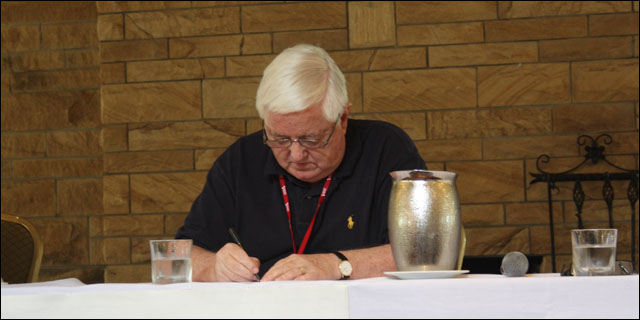blog Come on, we know you’ve been waiting with bated breath since yesterday to find out what Exetel chief executive John Linton thinks of the NBN Co business case released yesterday. No major NBN announcement would be complete without Linton’s point of view. And Linton doesn’t disappoint. This morning, he writes:
“I thought Exetel had sub-standard business plans … but ours are an economic work of art compared to the drivel released yesterday purporting to be the ‘NBN2’ business plan for the next 9 plus years.
I wasted part of my life yesterday reading the newly released NBN Co business plan — or more correctly described — the NBN Co draft outline of some ideas for possibly constructing an unbudgeted infrastructure with no underpinning facts to show why it would be a good thing to invest an unknown (because there was no factual basis for almost all of the assumptions) amount of money in. As a ‘business’ document it lacked any credibility to any sensible investor — but then the investors, you and I and every other taxpayer, were never consulted before this Krudd cover-up was foisted on us.”
And that’s just the start — the rest of the post is in this vein.
However, as Linton’s post rolls on, he actually starts to make some sense, going into some of the real prices that smaller ISPs like Exetel pay and where he expects the NBN pricing to sit within that structure. As with all of the Exetel chief’s ranting monologues, don’t write his opinion off just because he sounds a little off-beam. When it comes down it, Linton often appears have a sound financial argument for his arguments.
The minimum $24 monthly cost for a 12Mbps service, Linton points out, is around 30 percent more than Exetel currently pays for an ADSL2+ service from “the most sensible” of its wholesale suppliers. He also discusses the bundled telephony situation, which NBN Co’s business case doesn’t go into that deeply, and ruminates about activation charges and even whether 70 percent take-up of NBN services is realistic.
As we’ve previously written, Linton’s not crazy, just eccentric and plain-spoken. And Exetel is exactly the size ISP which the Federal Government needs to keep alive if it is to justify its claims of increased competition in the post-NBN telecommunications sector.
Image credit: Delimiter


“is around 30 percent more than Exetel currently pays for an ADSL2+ service from “the most sensible” of its wholesale suppliers. ”
I was wondering about this, how it compared to wholesale adsl2+. Seems its more expensive, which means the retail plans for the NBN are going to most likely be more expensive.
Does the NBN costs more to maintain than the copper adsl network?
Or is it just because its brand new that its costing so much and we’ll see better pricing in 15yrs time….
Too bad I don’t want to pay to read his ramblings…
By my calculations, that means Exetel is paying $18.50 wholesale. On a retail plan of, say, $50 that means the retailer will need to charge $5.50 more to retain the same margin.
Also, you can bet Exetel’s most “sensible” wholesaler is not Telstra. That means, whoever it is (likely Powertel/AAPT, probably not even Optus) that rate would only be available in a tiny fraction of exchanges. I’d love to know the wholesale price in Telstra/Optus exchanges (though I understand it’s not the same price across Australia, I’ve never seen anybody mention even a ballpark figure).
I’ve been burned by Exetel myself (I was a customer, until they decided to “terminate” my contract for no particular reason, meaning I had 30 days to find a new ISP, churn my phone back to Telstra and reconnect… I was without internet for about 10 days while it all got sorted out…) so when you say that Exetel is exactly the kind of ISP the Government needs to “keep alive”, you’ll forgive me if I don’t agree :-)
If Vodafone enters, why do we need the likes of Exetel ?
Serious question… honest.
You’d really want to sign up to Vodafone as your internet provided?
~Shrug.
If the contract is worded in a way I like, I’d try them. I’m not in a ‘must not be disconnected’ state when at home. Work, however, is different.
To be honest, having been both a Vodafone and Telstra customer, the blackspots on both networks are generally fairly similar in the areas I frequent.
Vodafone speeds are just fine most of the time, but when the signal does drop, it drops quicker than with Telstra.
Vodafone are copping a slamming in the highly contended cells, but that’s a capacity issue, not a “quality” issue per se.
The bottom line is many of the really small ISPs – (and there are hundreds) – pay $25 or more per month RIGHT NOW for wholesale access through Telstra Wholesale’s DSLAMs.
So $24 per month through the NBN doesn’t seem so bad.
Someone calculated above that Exetel are paying in the range of $18 to $19 per month, which doesn’t seem like they are too far above the “really small ISPs” in purchasing power, so how relevant Exetel is to the overall picture of telecommunications in this country is certainly open to debate.
Comments are closed.